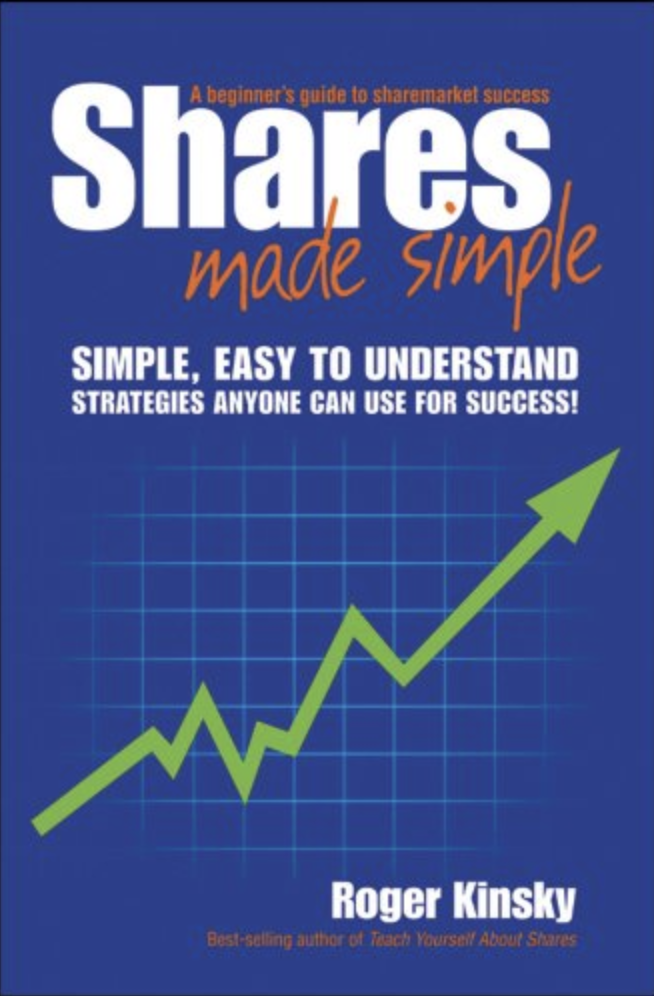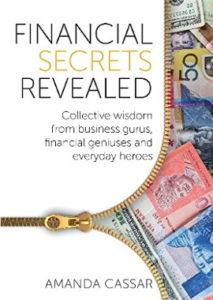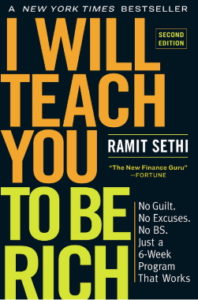Shares Made Simple: A Beginner's Guide to Sharemarket Success
Roger Kinsky
On the front cover of this book it states 'Simple, easy to understand strategies anyone can use for success!'.
I don’t necessarily agree with that statement. So why am I recommending this book?
When you invest in index funds you are investing in all the companies in the share market that the index fund is following. So, for example if you invest in an Australian index fund you are investing in say the top 500 companies or all the companies represented in the Australian share market. When you invest this way, you are not buying shares in one specific company directly. The index fund does that for you. For example, your index fund would have shares in the Commonwealth Bank so you are invested in that company but you haven’t gone out and bought the CBA shares directly.
If you want to buy shares in specific companies then more research is involved and you need to understand the language of share investing so to speak and you can learn that from this book.
If you want to understand how to read the financial news in the papers, this book will explain all the jargon for you. For example, there are statistics available about companies to help you understand their fundamentals such as the price to earnings ratio also referred to as the PE ratio.
Understanding these statistics help us make sound investment choices when choosing shares. Personally, this kind of investing makes my eyes glaze over and my brain switch off. I don’t want to invest in individual company shares. I don’t want to have to research the companies and understand their fundamental and unless you are a reckless investor, this is what you need to do if you want to invest in individual companies.
Personally, I think investing in only a few companies is risky because no company is indestructible, unless of course you own shares in a lot of different companies. However, you need a lot of money to do that. There is nothing wrong with investing in companies individually if that is your interest and you want to put the time into understanding the companies.
If you want to do that you need to understand the language of investing in shares and Roger’s book will teach you that.
For me personally, reading this book just affirmed for me that I am really happy investing in index funds and that is the best strategy for me because I don’t have the interest or the inclination to spend large amounts of time researching companies.
I want my investing to be simple, easy to understand and implement, as well as getting the best return with the least amount of fees.
Please note as an affiliate of Amazon Associates I receive a commission if you make a purchase by clicking through the Amazon links on this website. This is at no extra cost to you.





